Premium Only Content
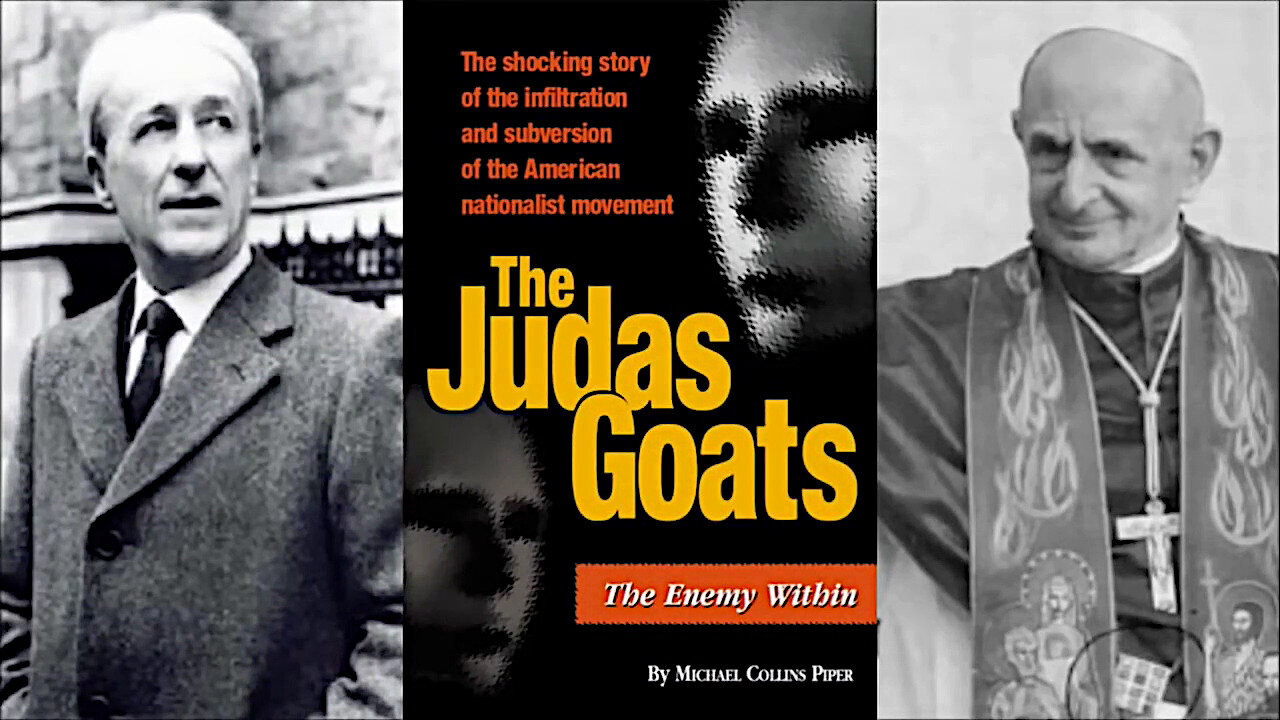
How the Jews infiltrated the Vatican - Michael C Piper with introduction by Jan Lamprecht
How the Jews infiltrated the Vatican and changed the Catholic Church - Michael C Piper with introduction by Jan Lamprecht
In 1964, under the pseudonym of "Michael Serafian", Martin wrote The Pilgrim: Pope Paul VI, the Council, & the Church in a Time of Decision. The book contained Martin's views on the Jewish question in Europe and on the Second Vatican Council.
Journalist Joseph Roddy alleged — in a 1966 Look Magazine article about the debate about Jews during the Second Vatican Council — that one and the same person under three different pseudonyms had written or acted on behalf of Jewish interest groups, such as the American Jewish Committee, to influence the outcome of the debates. Roddy wrote that two timely and remunerated 1965 articles were penned under the pseudonym F.E. Cartus, one for Harper's Magazine and one for the American Jewish Committee's magazine Commentary.
Roddy alleged that tidbits of information were leaked to the New York press that detailed Council failings vis a vis Jews under the pseudonym of Pushkin. Roddy claimed two unidentified persons were one and the same person — a "young cleric-turned-journalist" and a "Jesuit of Irish descent working for Cardinal Bea...who was active in the Biblical Institute" — he figuratively named as Timothy O'Boyle-Fitzharris, S.J. so as not to reveal the true identity of his source.
In his 2007 book Spiritual Radical: Abraham Joshua Heschel in America, Edward K. Kaplan confirmed that Martin cooperated with the American Jewish Committee during the Council "for a mixture of motives, both lofty and ignoble...[He] primarily advised the committee on theological issues, but he also provided logistical intelligence and copies of restricted documents." It is confirmed in the book that Martin used the pseudonyms Forest and Pushkin. Kaplan acknowledges that The Pilgrim by Michael Serafian, was requested from Martin by Abraham J. Heschel, who arranged for the book to be published by Roger W. Straus, Jr.'s Farrar, Straus and Giroux printing company. It was published in the hope that it would influence the deliberations in the council. Once Martin's identity as author was revealed, it led to protests "and the book had to be removed from circulation at considerable financial loss to the publisher". Kaplan lastly states that Martin was the primary source of information for Joseph Roddy in writing his 1966 article for Look Magazine, and that O'Boyle-Fitzharris was, in fact, Martin. Kaplan judges the Roddy article as "dangerously misleading [due] to the credence it gives to the claim that without organised Jewish pressure the council declaration on the Jews would not have been accepted."
Martin explicitly denied he was a spy, along with denying other rumors. Michael Cuneo, in his book American Exorcism, writes, "Martin told me that he was perplexed, and more than a little annoyed, by the swirl of rumors surrounding his personal life."
Elsewhere, Martin admitted some of his work involved intelligence gathering behind the Iron Curtain and throughout the Middle East, and at times threatening cardinals with blackmail if they did not want to do what Bea and John XXIII wanted from them at the council. "I saw cardinals sweating in front of me," Martin recalled. "And I began to enjoy it."
https://en.wikipedia.org/wiki/Malachi_Martin
Rumors appearing on various Catholic or sedevacantist ("empty seat") websites and magazines alleged that Martin had Jewish ancestry that descended from Iberian Jews who migrated to Medieval Ireland and the Kingdom of England in the 15th century, and also alleged him being an Israeli spy because of his first name, Malachi, after a Hebrew prophet and his extensive travels in the Levant. These allegations were rebutted by William H. Kennedy (In Defense of Father Malachi Martin). After having made genealogical inquiries with surviving relatives of Martin in Ireland, Kennedy concluded that Martin's father was an Englishman who moved to Ireland, and that Martin's mother was Irish on both sides. Fr. Rama Coomasrawamy confirmed this independently. The Irish language name Maélsheachlainn is usually anglicized as "Malachy", and Saint Malachy was a 12th-century Irish Catholic saint.
-
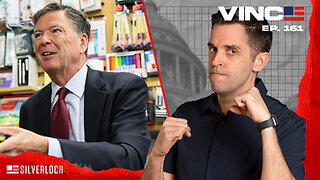 LIVE
LIVE
VINCE
2 hours agoThe Proof Is In The Emails | Episode 161 - 11/04/25
32,567 watching -
 LIVE
LIVE
Benny Johnson
1 hour ago🚨Trump Releases ALL Evidence Against James Comey in Nuclear Legal BOMBSHELL! It's DARK, US in SHOCK
4,923 watching -
 1:34:34
1:34:34
Graham Allen
2 hours agoThe MAGA “Civil War” Will LOSE The Midterms! Is A Fracture Coming? ALL Eyes On Key Races!
69.6K37 -
 LIVE
LIVE
Badlands Media
9 hours agoBadlands Daily: November 4, 2025
3,404 watching -
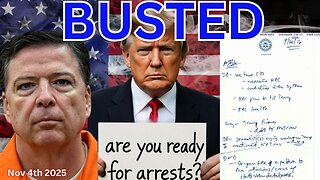 LIVE
LIVE
Wendy Bell Radio
6 hours agoBUSTED.
7,780 watching -
 20:28
20:28
Real Estate
1 month agoMILLIONS of Homeowners ARE LOSING MONEY NOW...
5.04K2 -
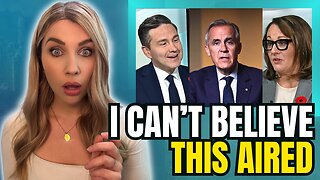 22:35
22:35
Jasmin Laine
19 hours ago"They're Rude and Dismissive"—Poilievre Gets CBC To CONFESS On Camera
5.37K29 -
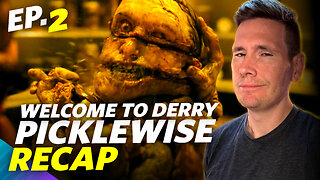 12:26
12:26
Adam Does Movies
23 hours agoIT: Welcome To Derry Episode 2 - Review + Recap
3.69K1 -
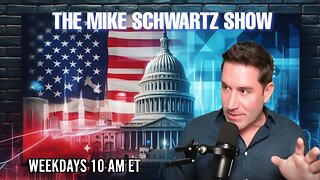 LIVE
LIVE
The Mike Schwartz Show
13 hours agoTHE MIKE SCHWARTZ SHOW with DR. MICHAEL J SCHWARTZ 10-04-2025
3,697 watching -
 18:59
18:59
RTT: Guns & Gear
1 day ago $0.37 earnedKOR FX-9 RP Review — Is This The Best New Budget 9mm Pistol?
8.96K3